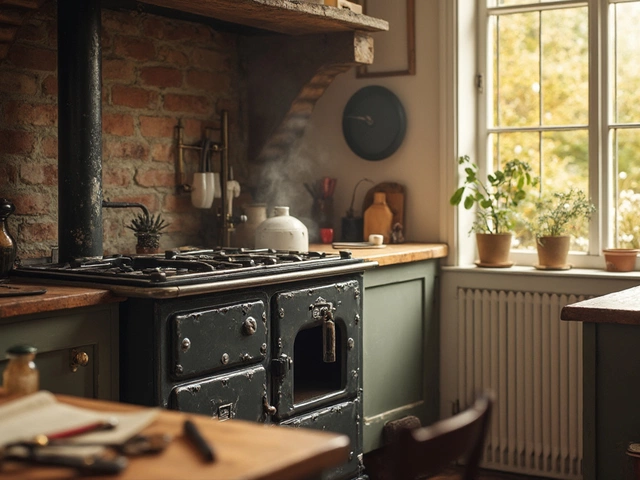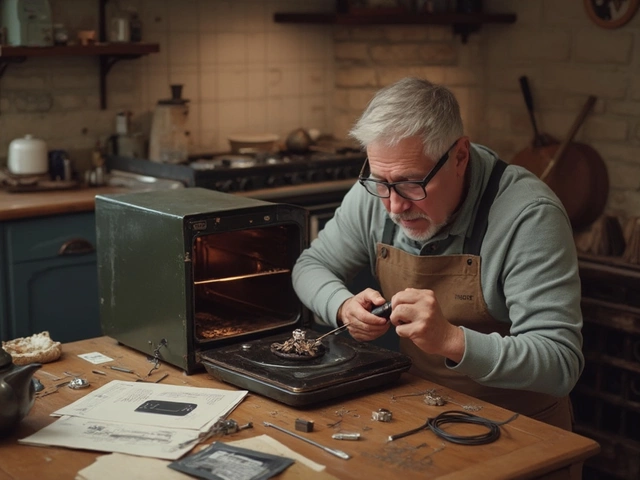When your boiler breaks down in the middle of winter, everything stops. The good news is most problems can be avoided with a few simple habits. Below you’ll find straight‑forward advice you can follow yourself and signs that tell you when to call a professional.
Boilers are built to last, but they do give clues when something’s wrong. If you hear strange banging or whistling noises, turn the heat off and let it cool before you investigate. A sudden drop in water pressure (look for the gauge below 1 bar) is another red flag – low pressure can cause the boiler to shut off to protect itself.
Leaking water around the unit, rust on pipes, or a constantly wet floor means a seal or valve could be failing. Also keep an eye on the thermostat; if it’s constantly calling for heat but the radiators stay cold, the heat exchanger might be clogged.
Finally, any odd smells – especially a sweet, gas‑like odor – demand immediate action. Open windows, switch off the boiler, and call a Gas Safe engineer right away. Safety always comes first.
Most of the work that keeps a boiler safe is low‑effort and can be done in an hour or two. Here’s a quick list to follow before the heating season starts:
If anything feels off while you’re checking these items, note it down and tell the engineer when they arrive. Being specific saves time and money.
Even with a solid DIY routine, a yearly service by a qualified professional is a must. A Gas Safe engineer will check the gas supply, calibrate the control panel, and clean the internal parts you can’t reach. The cost of an annual service is usually far less than an emergency repair, and the peace of mind is worth it.
When you schedule that service, ask for a written report. It should list any parts that were replaced, the condition of the heat exchanger, and when the next service is due. Keeping these records helps you track the boiler’s age and decide when replacement makes more sense than repair.
In short, safe boiler maintenance is about two things: spotting problems early and doing simple, regular checks. Follow the checklist, watch for warning signs, and book a professional service each year. Your boiler will stay reliable, your home will stay warm, and you’ll avoid unexpected breakdowns – all without breaking the bank.

Curious if you can fix your boiler yourself? This detailed guide covers common boiler problems, easy repairs you can tackle, and when to leave it to the pros.

Repairing a gas oven might seem daunting, but it's often worth the effort. This article explores when it's practical to repair versus replace, common issues, and cost-effective solutions. Learn helpful tips, find out if it’s a DIY fix, and consider important safety aspects. Discover how to make an informed decision that saves money and hassle.

Oven troubles can throw a wrench in your meal plans. From a faulty heating element to problematic door hinges, diagnosing oven issues doesn't have to be daunting. This guide helps you identify and address common electric oven problems. Learn when a DIY fix is safe and when it's time to consult a professional. Simple steps and practical tips get you on your way to a working oven.

Considering replacing your electric oven on your own? Before you jump into action, it's crucial to understand the steps involved and the potential challenges you might face. From ensuring safety precautions to understanding the basic wiring, this article delves into what you need to know. We'll discuss not only the tools and skills required but also when it's better to call in a professional. By the end, you'll have a clearer picture of whether you should tackle this task yourself or seek expert help.

Wondering how often you should replace your extractor fan? This article covers extractor fan lifespan, signs it's time for a change, maintenance tips, and why fresh air matters.

Discover how much boiler service costs in 2025, what affects the price, what's included, and tips to save money while keeping your heating safe and reliable.